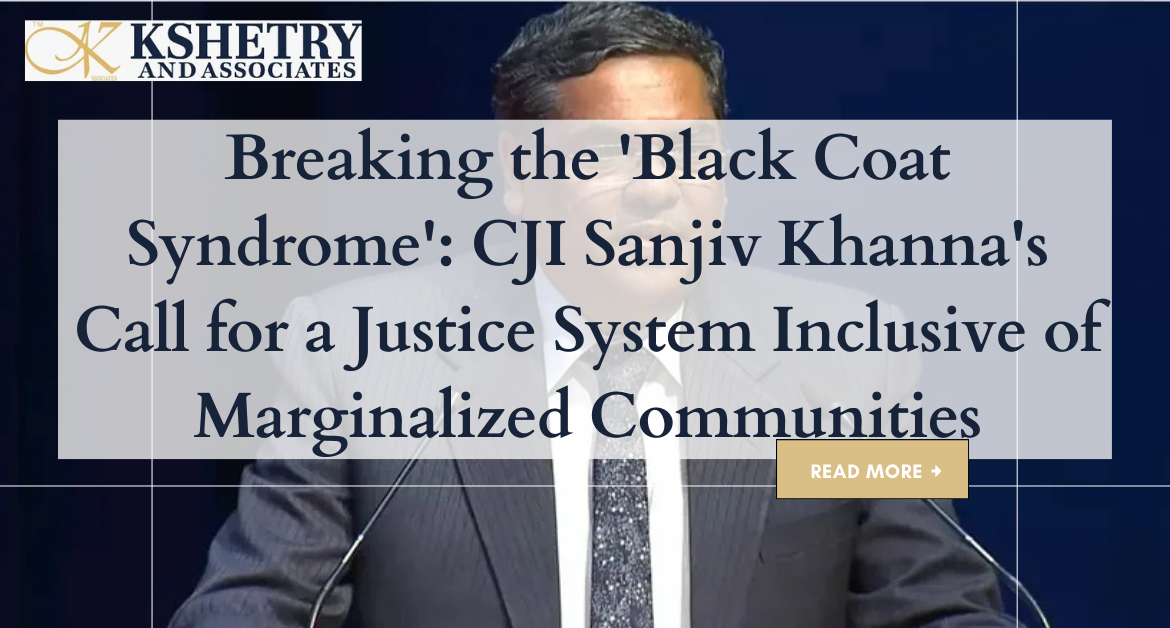On December 10, 2024, during the Human Rights Day celebrations organized by the National Legal Services Authority (NALSA), Chief Justice of India (CJI) Sanjiv Khanna emphasized the need to address the pervasive fear and alienation felt by marginalized communities in their interactions with the legal system. Referring to this phenomenon as the “Black Coat Syndrome,” CJI Khanna highlighted the systemic barriers faced by disadvantaged groups when dealing with judges, lawyers, and legal procedures.
Addressing the Marginalized Perspective
The event, held to commemorate the 77th anniversary of the Universal Declaration of Human Rights (UDHR), also featured Justice BR Gavai, Justice Surya Kant, and Union Law Minister Arjun Ram Meghwal. CJI Khanna built on the earlier remarks of President Droupadi Murmu, who had called for a reimagining of the justice system through the lens of marginalized communities. The CJI elaborated that the “Black Coat Syndrome” reflects a deeply ingrained fear and sense of alienation experienced by those on society’s fringes, including daily wage earners, underprivileged groups, and undertrial prisoners.
Systemic Challenges for Vulnerable Populations
CJI Khanna illustrated his concerns with examples, such as the plight of daily wage earners like rickshaw pullers when they face legal proceedings. He explained that individuals from disadvantaged backgrounds often lose their livelihood for the day when required to appear in court, disrupting their fragile economic stability. Wealthier individuals, on the other hand, can more easily bear the financial and logistical burden of attending court hearings. Such systemic disparities highlight the need for a more empathetic and inclusive justice delivery system.
The Need for Judicial Reform
CJI Khanna called for reforms to transform the legal system into one that prioritizes the needs of the most vulnerable. He pointed out the challenges faced by undertrial prisoners who languish in jails for prolonged periods due to systemic inefficiencies. The Chief Justice stressed the importance of revising legal practices and judicial procedures to make them more accessible, efficient, and humane for marginalized communities.
A Broader Call to Action
The event underscored the critical need for proactive legal reforms and better access to justice. By acknowledging and addressing the “Black Coat Syndrome,” the judiciary can move closer to creating a system that truly upholds the principles enshrined in the Universal Declaration of Human Rights. Through collaboration between legal professionals, policymakers, and the public, India can work toward building a legal system that ensures justice for all, especially for those who are often overlooked and underserved.
Also Read: Employment Law in India: Employee Rights and Employer Obligations

